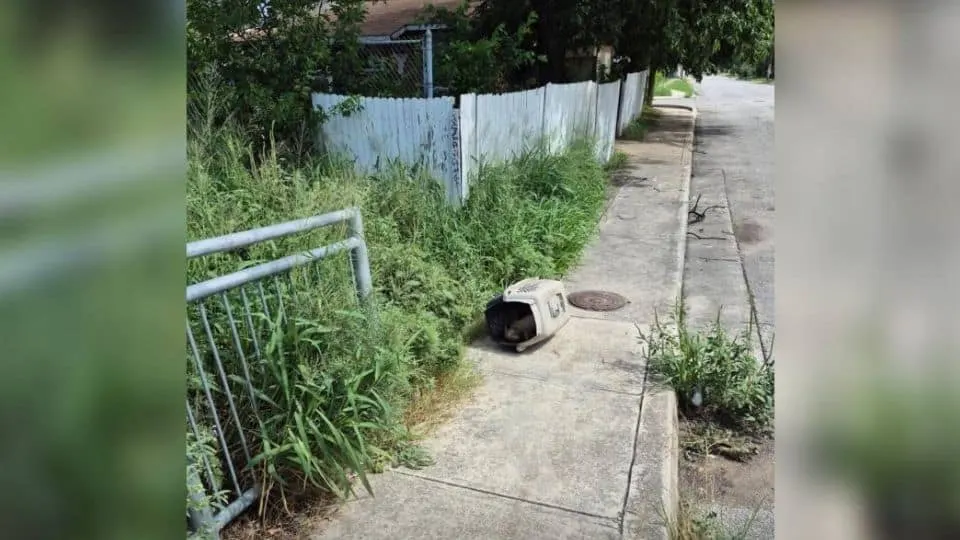
In the middle of a scorching Texas day, a dusty plastic crate lay on its side near a dried-up creek bed in San Antonio.
The summer sun beat down relentlessly, pushing the temperature close to 100 degrees.
The crate looked empty, weathered, and broken, missing its door and tilted awkwardly on the sidewalk. It had been there long enough to be ignored, just another forgotten object in the heat.
Cars sped past without a second glance. Pedestrians walked by, barely noticing.
A Crate Sat Forgotten In The Heat
No one thought to stop. But inside that silent box, tucked deep in the shadows, was a small soul waiting for help.
A little dog, completely still, was lying on the plastic floor. He wasn’t making a sound. He wasn’t even raising his head. But he was breathing. He was surviving, barely.
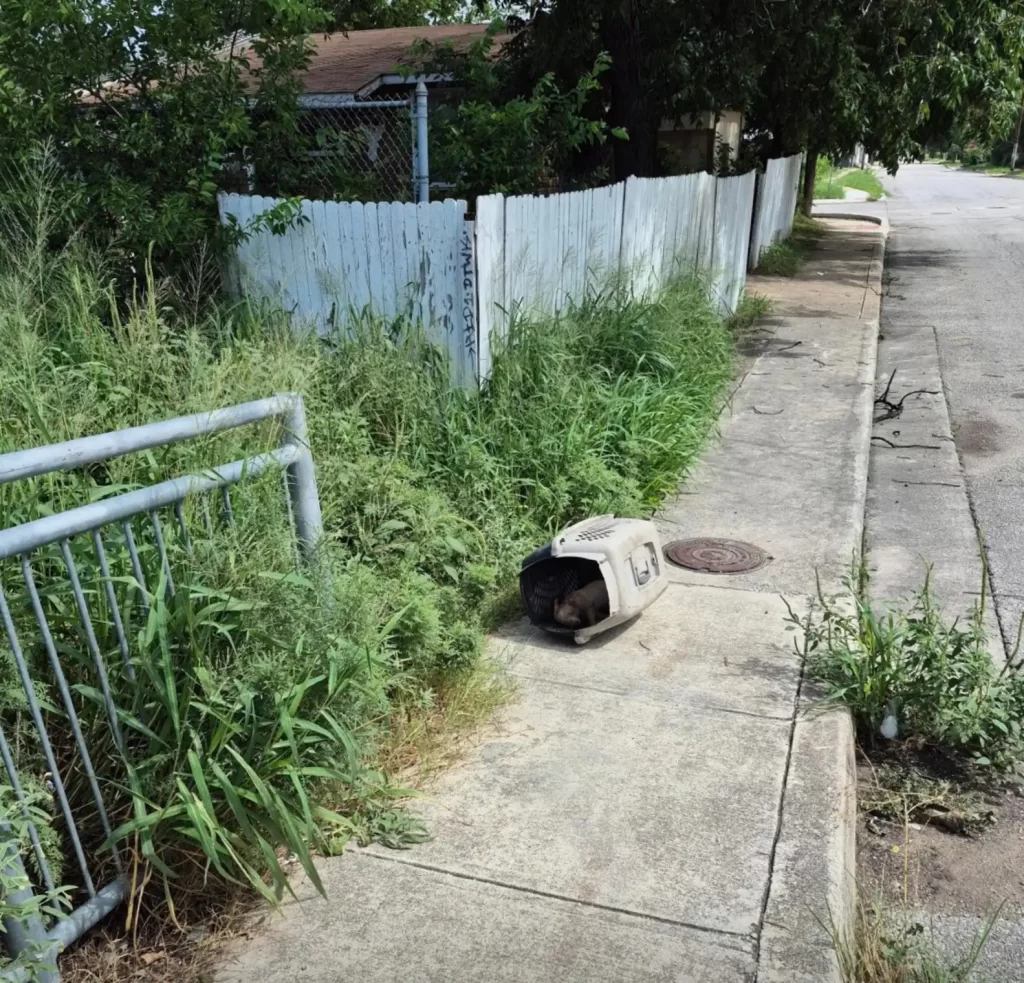
Finally, someone looked closer and realized the crate wasn’t empty. A call was made, and soon, help was on its way.
Officer Garza from San Antonio Animal Care Services arrived at the scene. The moment he peered inside the crate, his heart sank.
He Was Scared, Silent, And Too Weak To Cry Out
Curled in the far corner was a tiny dog, about 14 pounds, barely holding on. His fur was thin and patchy, his eyes dull, and his body covered in fleas and ticks.
The little dog didn’t move or whimper. He simply looked up with tired, hopeless eyes.
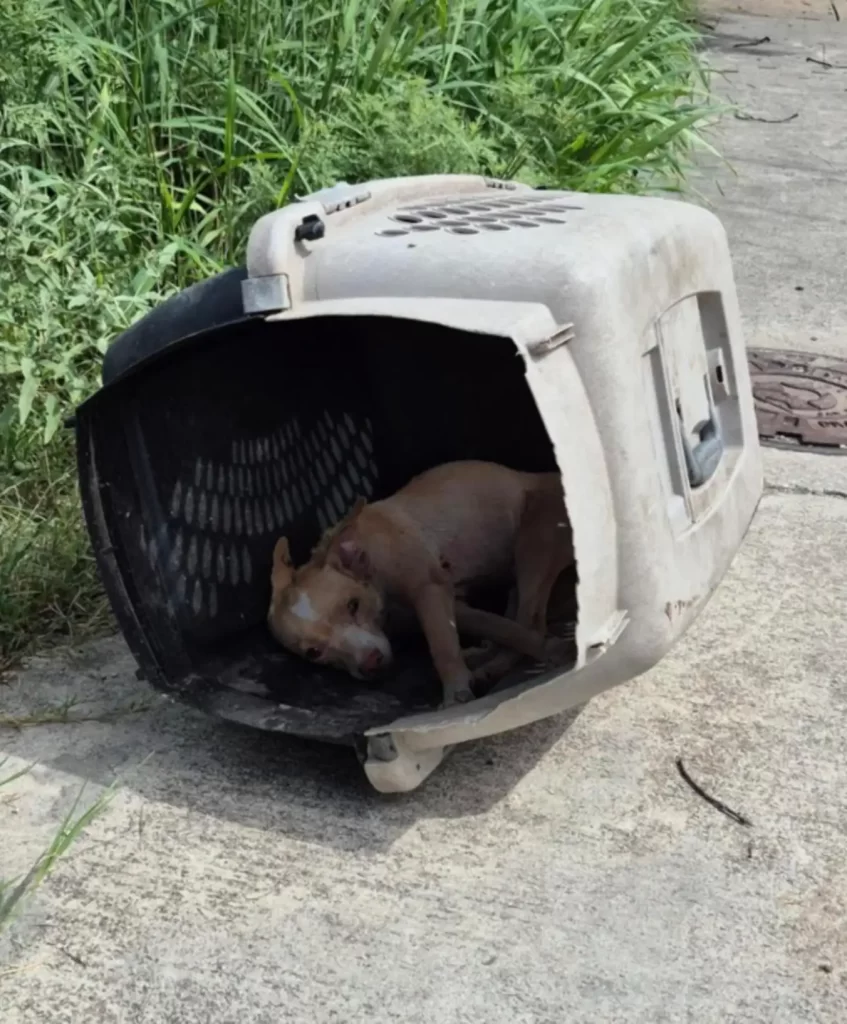
Each time the officer tried to reach in, the dog flinched and pushed himself back as far as he could go. He was terrified, as if human hands had only ever brought pain.
They named him Leo, though at that moment, he seemed far too broken to carry even a name. There were no obvious injuries, but something was deeply wrong, not in his body, but in his heart.
To avoid stressing him further, Officer Garza lifted the crate itself and gently placed it into his vehicle. The cool air from the AC started to work its magic.
As the minutes passed, Leo slowly lifted his head for the first time. It wasn’t much, but it was a sign that the little dog hadn’t given up completely.
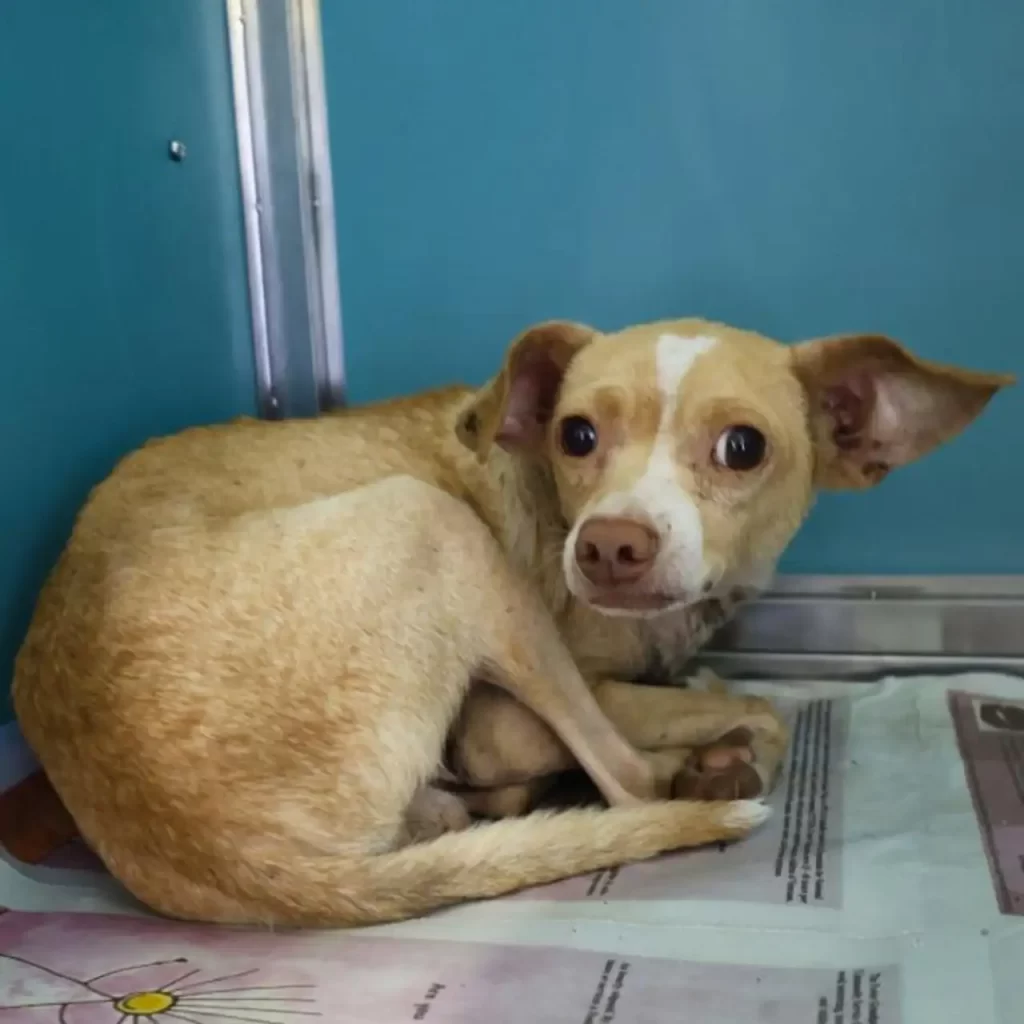
At the medical center, staff gave Leo treatment for his parasites, vaccinated him, and offered him soft food. But Leo refused to eat.
He stayed curled up, still as ever. Any time someone reached in, he would shrink back. His fear was clear. Whatever he had been through, it had left deep scars.
No one knew how long he’d been out there, but it was clear he had lost faith in the world.
A New Name, A New Place, And A Glimmer Of Hope
News of Leo’s condition reached SNIPSA, a rescue group that partners with the shelter. They stepped in and offered to take the fragile dog into their care.
They gave him a new name, Arroyo, after the dry creek where he’d been found. It was more than just a name. It was a promise of a fresh beginning, a new identity not tied to pain.
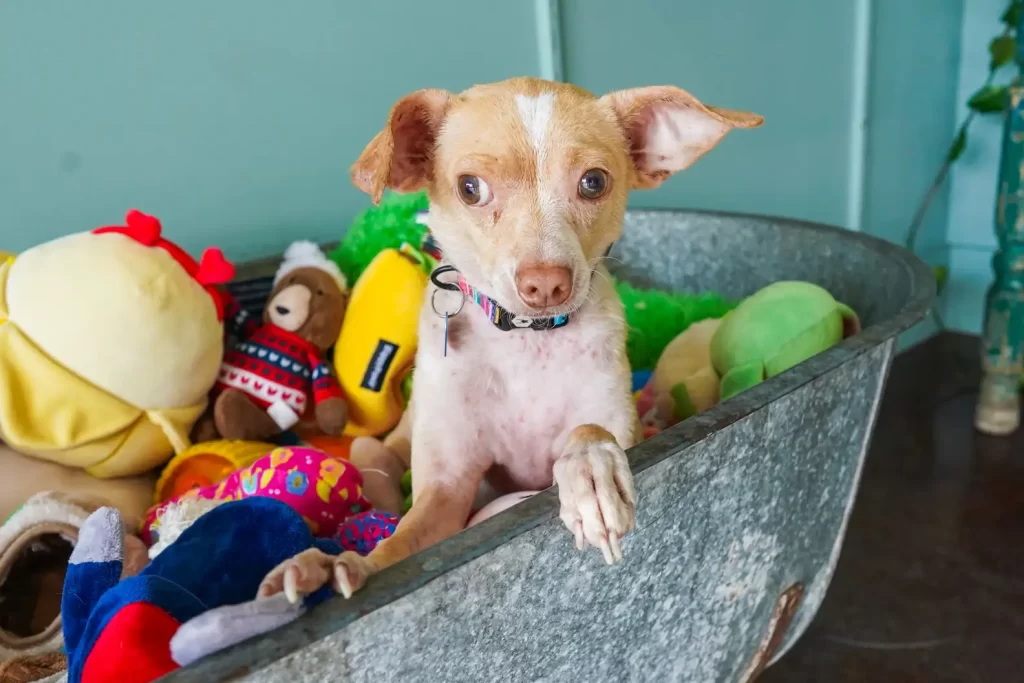
Arroyo was moved into a foster home where the environment was quiet and calm. His foster gave him space, a soft bed, and a cozy blanket to curl up in.
The difference between the hard plastic floor of the crate and the warmth of a blanket was everything. Arroyo didn’t understand it yet, but he was safe now.
A New Start
No more heat, no more fear, no more being ignored.
In the days that followed, Arroyo started to change. Slowly, carefully, he began to come out of his shell. His foster didn’t push, they simply sat with him, spoke gently, and waited.
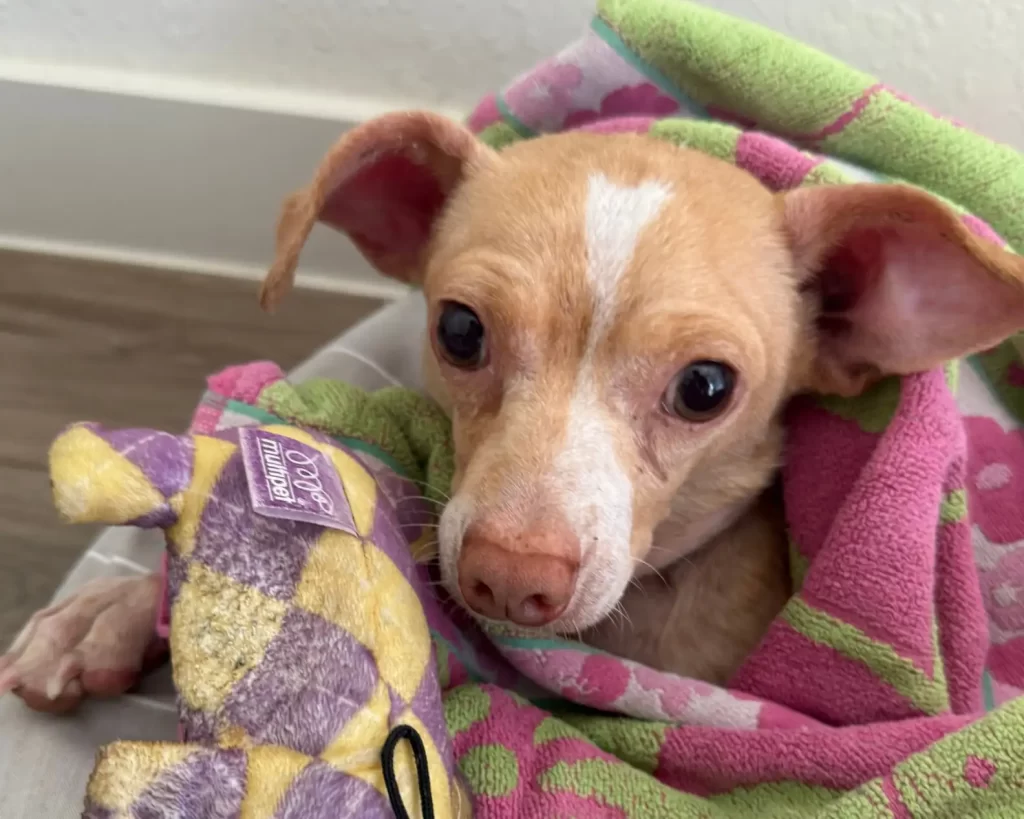
And Arroyo responded. He allowed soft touches. He accepted food from their hands. His eyes, once full of fear, started to soften.
The little dog who once flinched from every hand was learning to trust again.
Someone has already shown interest in adopting Arroyo. The process has begun, and if all goes well, he’ll soon have a forever home.
A home where he will never be left alone in the heat again. A place where crates are for safety and rest, not abandonment. A home where he’ll be loved, truly and unconditionally.
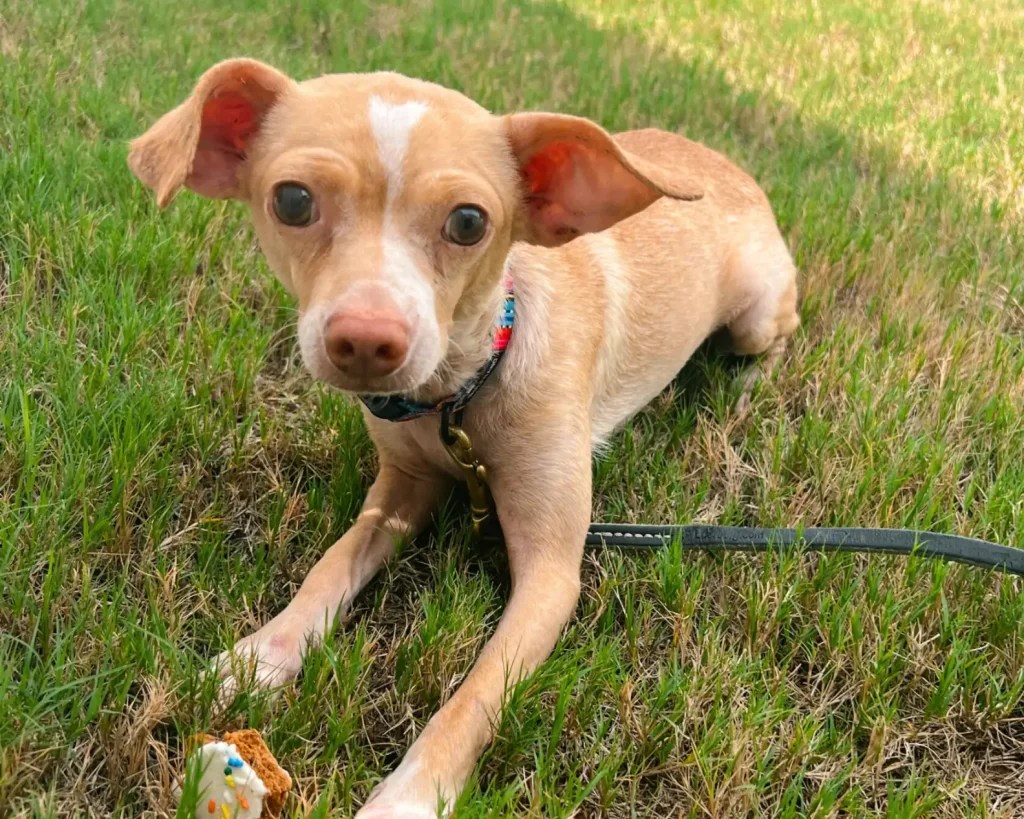
Arroyo was once left in silence, unnoticed and unwanted.
But now, he’s proof that love can find you even in the darkest, hottest corner of the world. And sometimes, it just takes one person stopping to look.
